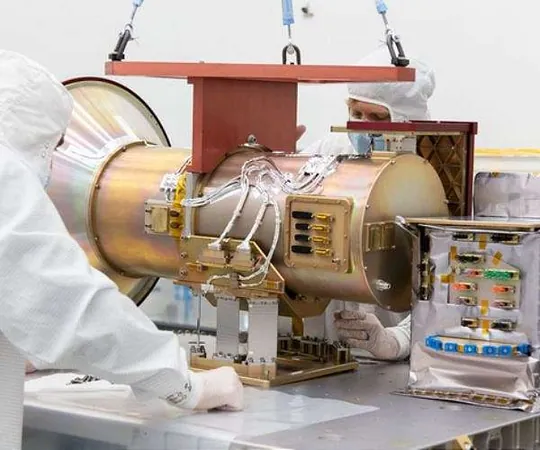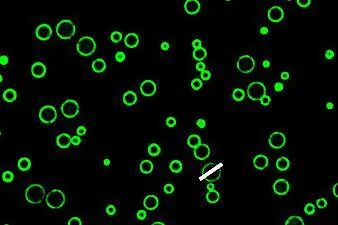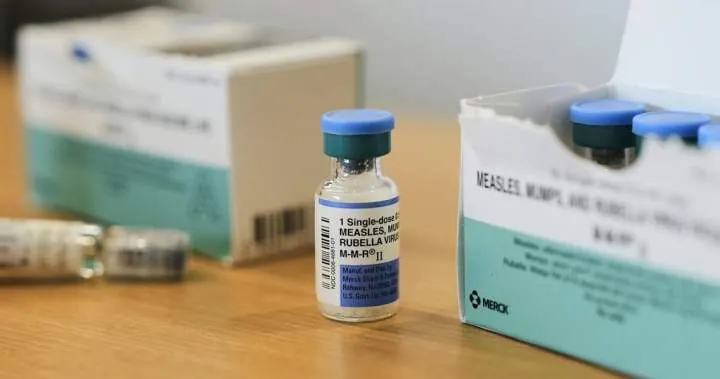
Unlocking Safety in Schools: How a 30-Minute Online Course is Transforming Anaphylaxis Preparedness
2025-07-31
Author: William
Revolutionizing School Safety with Quick Online Training
In a groundbreaking study, researchers have unveiled how a concise, 30-minute online course is greatly enhancing school staff's ability to handle anaphylaxis emergencies. Conducted by a team led by Dr. Bhanu Sharma from McMaster University, the research highlights the effectiveness of the AllergyAware program in equipping school personnel with the essential skills to prevent, identify, and manage severe allergic reactions.
A Surge in Food Allergies: Facing a Growing Challenge
With food allergies skyrocketing by 50% since the 1990s, and affecting around 33 million Americans, the urgency for education in schools is higher than ever. Common allergens include peanuts, tree nuts, milk, and shellfish, and the troubling rise in peanut allergies among infants—tripling from 2001 to 2017—signals a serious public health concern.
The Critical Need for Anaphylaxis Preparedness
Tragically, almost 40% of children with food allergies may face life-threatening anaphylaxis. Despite this, a staggering 20% of epinephrine administrations occur outside of hospitals, underscoring an urgent need for on-site readiness. With laws like Sabrina’s Law in Canada and the Food Allergy and Anaphylaxis Management Act in the U.S. mandating educational measures, schools are more compelled than ever to train staff.
Innovative Learning: The AllergyAware Course
AllergyAware has been designed as an asynchronous online course that provides accessible, expert-reviewed materials aligning with established medical guidelines. By incorporating engaging elements such as text, images, and videos, the course ensures that school personnel—from teachers to support staff—are well-prepared.
Impressive Results and High Recommendations
Initial pilot tests marked a remarkable improvement in knowledge and confidence among participants, with over 95% recommending the course to others. Since its inception, the course has seen more than 170,000 completions, averaging just 25 to 30 minutes to finish. Participants scored impressively on post-course quizzes, with a pass rate exceeding 95%.
Looking Ahead: Enhancing Real-World Application
Although the feedback has been overwhelmingly positive, researchers acknowledge the need for further studies to assess how effectively this knowledge is applied in real-life situations—particularly in the administration of epinephrine auto-injectors. The focus now shifts to long-term knowledge retention and overall management of anaphylaxis in schools.
A Call to Action: Ensuring Student Safety
As food allergies continue to rise, the imperative for swift and effective training in schools is clear. Online programs like AllergyAware not only provide timely education but also foster a culture of safety, ensuring that faculty are ready to respond confidently in emergencies.









 Brasil (PT)
Brasil (PT)
 Canada (EN)
Canada (EN)
 Chile (ES)
Chile (ES)
 Česko (CS)
Česko (CS)
 대한민국 (KO)
대한민국 (KO)
 España (ES)
España (ES)
 France (FR)
France (FR)
 Hong Kong (EN)
Hong Kong (EN)
 Italia (IT)
Italia (IT)
 日本 (JA)
日本 (JA)
 Magyarország (HU)
Magyarország (HU)
 Norge (NO)
Norge (NO)
 Polska (PL)
Polska (PL)
 Schweiz (DE)
Schweiz (DE)
 Singapore (EN)
Singapore (EN)
 Sverige (SV)
Sverige (SV)
 Suomi (FI)
Suomi (FI)
 Türkiye (TR)
Türkiye (TR)
 الإمارات العربية المتحدة (AR)
الإمارات العربية المتحدة (AR)